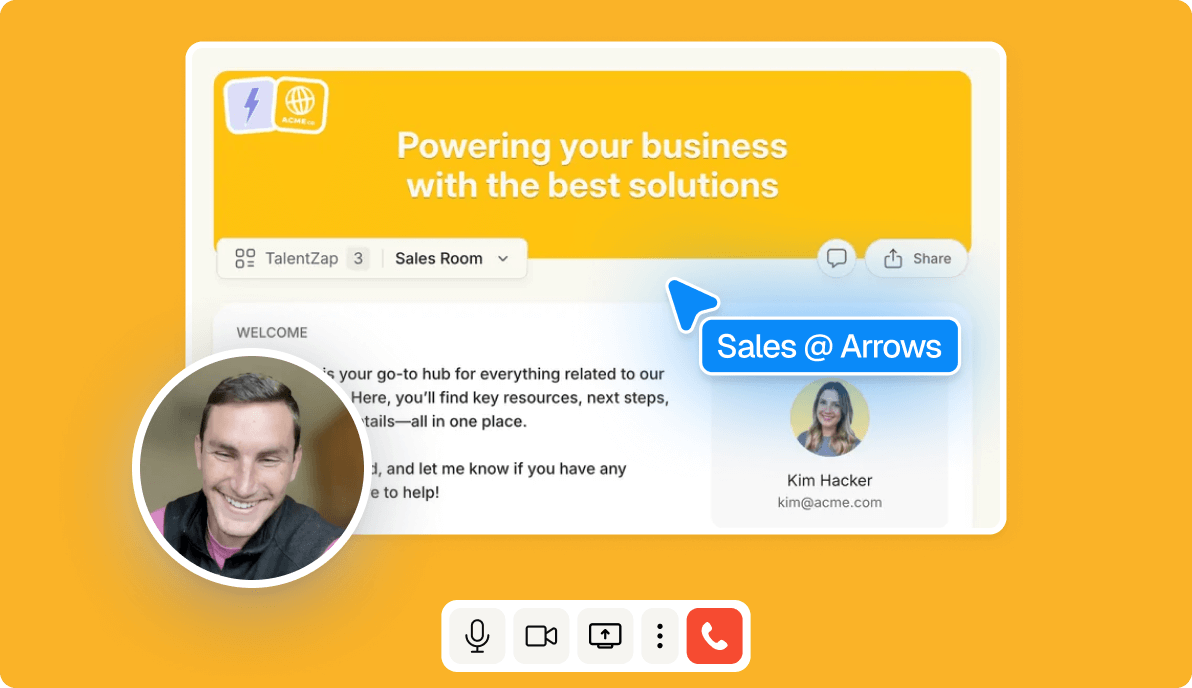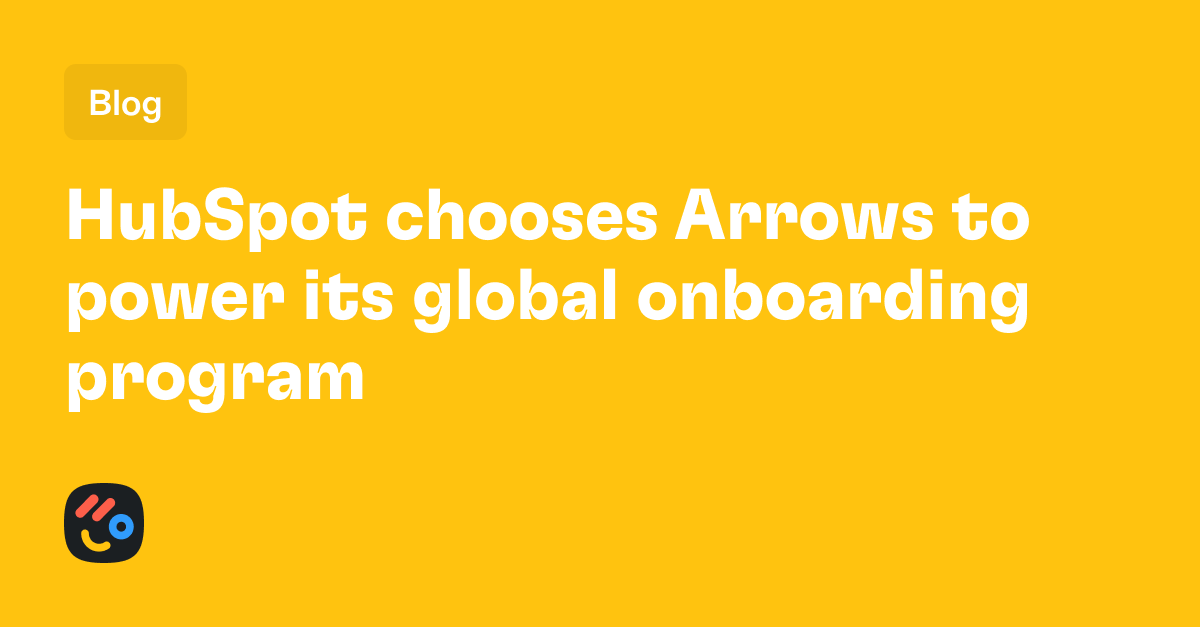Everything you need to know about HubSpot’s new Projects object for project management (2025)

.png)
Table of Contents
HubSpot recently introduced a brand-new Projects object to its CRM. While still in its early stages, this release gives teams a new way to manage project-style work directly inside HubSpot.
If you’re curious about how the Projects object works, what’s available now, and what’s coming soon, here’s an overview of everything you should know.
What is the HubSpot Projects object?
The Projects object is part of HubSpot’s core object library, joining Contacts, Companies, Deals, and Tickets. Like those objects, Projects has its own set of properties, views, and automation options designed to help teams manage multi-step work that goes beyond a single deal or ticket.
Right now, HubSpot positions Projects as a tool for lightweight project and task management inside the CRM. Over time, new features in development may expand its usefulness for teams that want to consolidate more of their workflows in HubSpot.
Key features available today
When you enable the Projects object in HubSpot (with the Gantt chart beta turned on), you’ll see:
Gantt chart view (public beta)
A visual timeline of your projects and tasks, showing start dates, due dates, and durations.
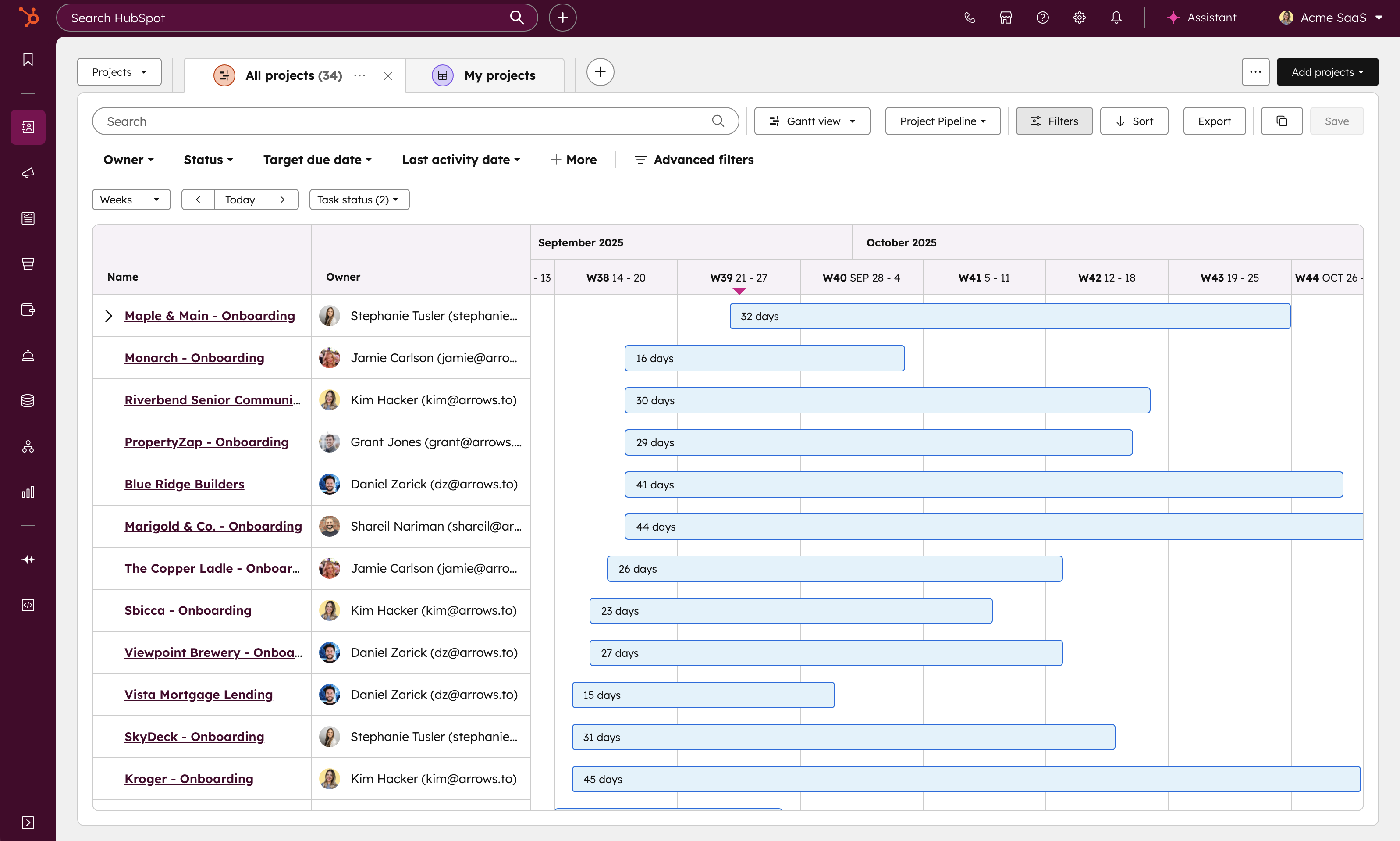
Calendar view
A date-based view of your projects. By default, it shows project create dates, but you can configure it to display other properties such as target due dates. This makes it easy to see what’s coming up and manage deadlines in a familiar calendar format.
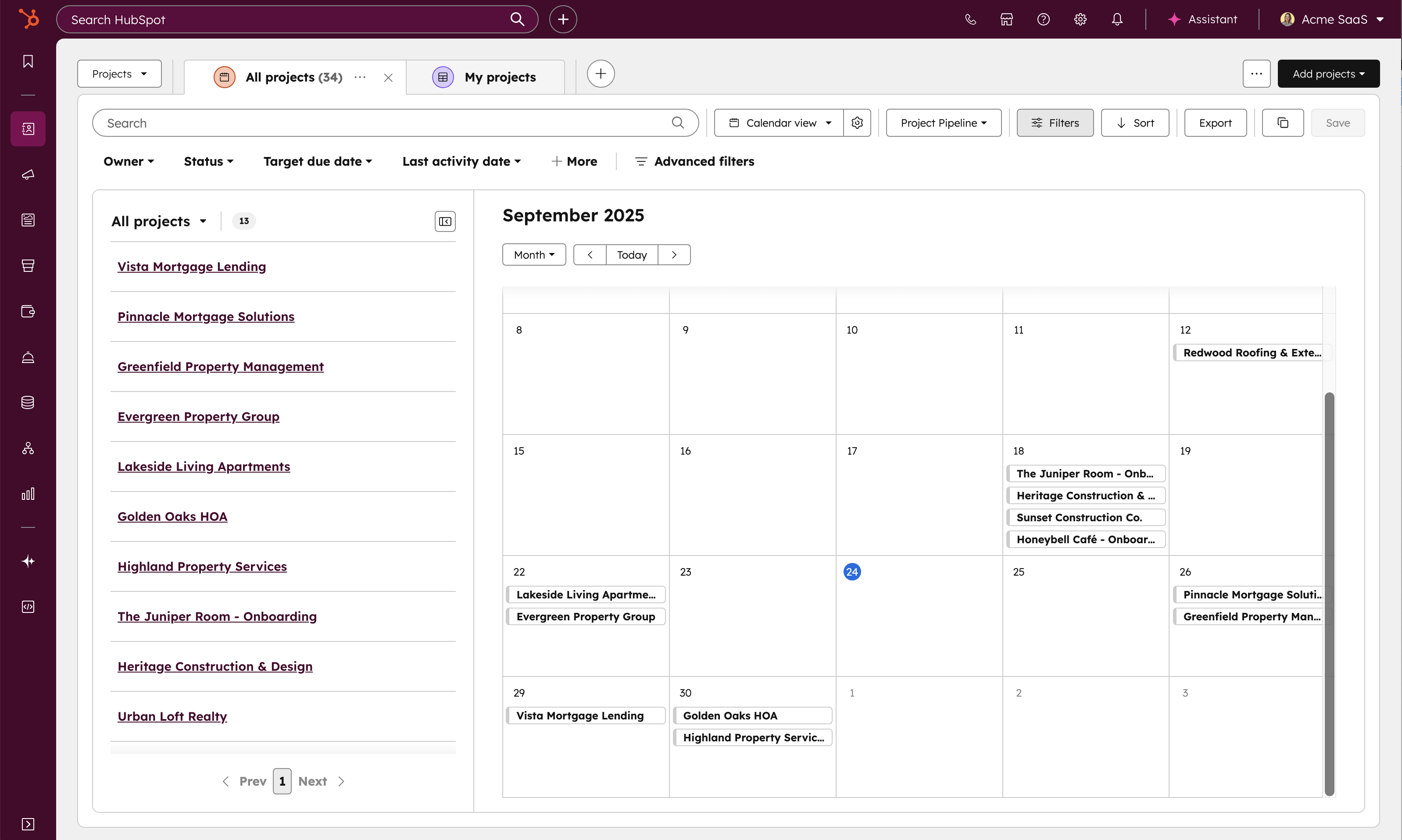
Pipeline tags
Projects come with built-in tags like Overdue and Due soon - a small but valuable feature that many new HubSpot objects don’t have at launch.
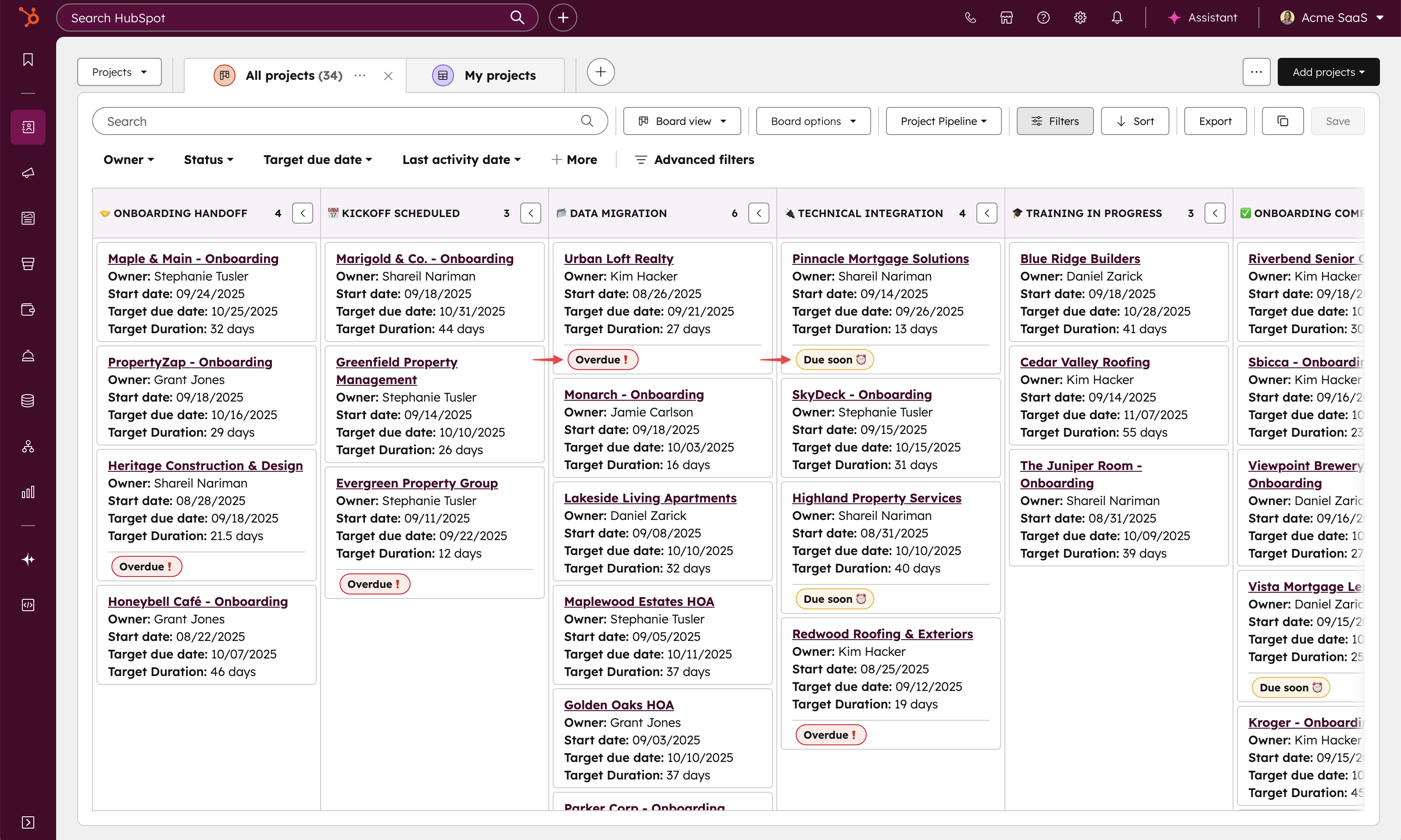
New default properties
Projects include start date, target due date, and target duration out of the box. These power both reporting and the Gantt chart visualization.
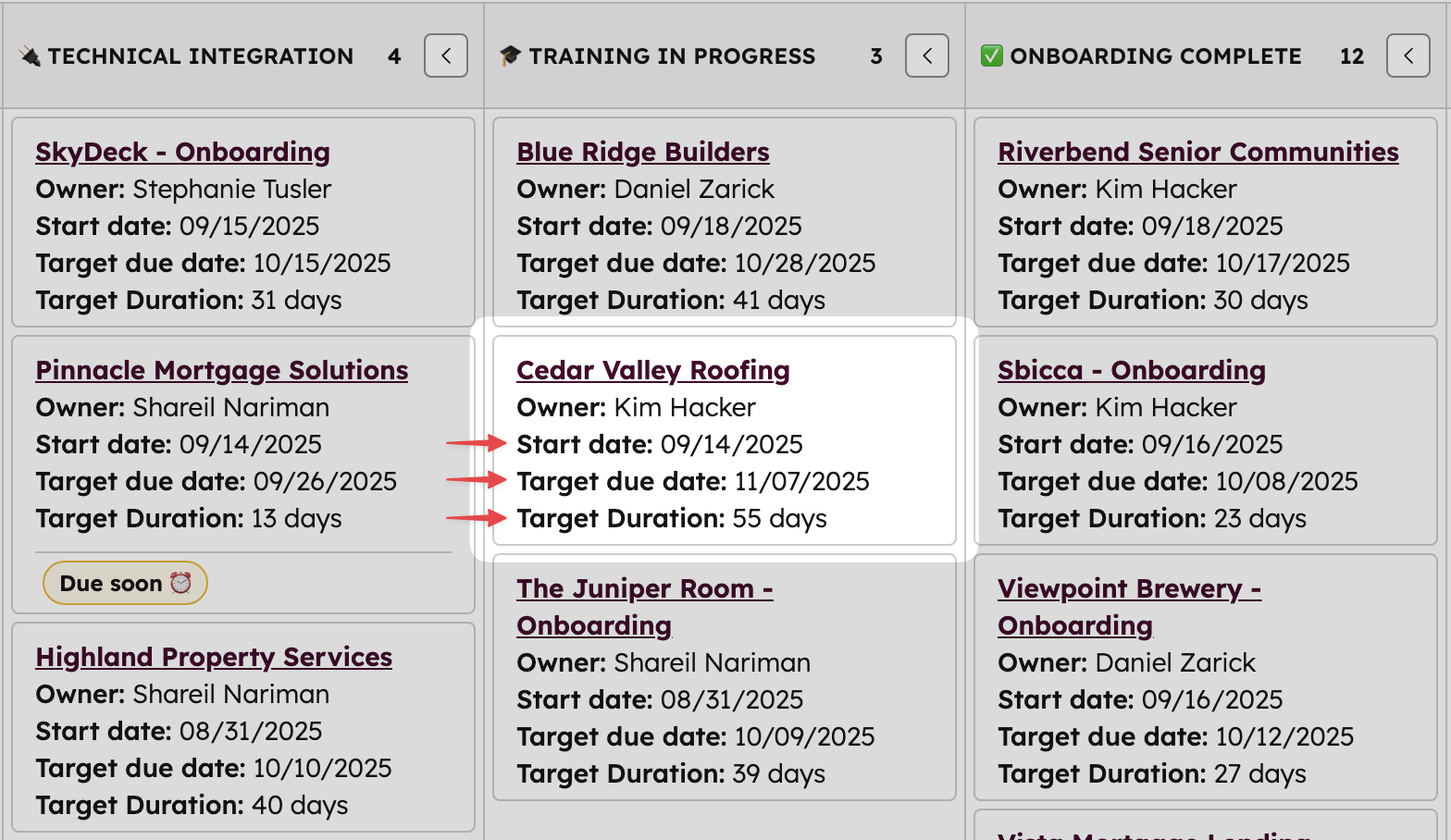
Workflow automation
You can automatically create a Project via workflow (e.g., when a Deal is marked Closed Won, HubSpot can spin up an onboarding project).
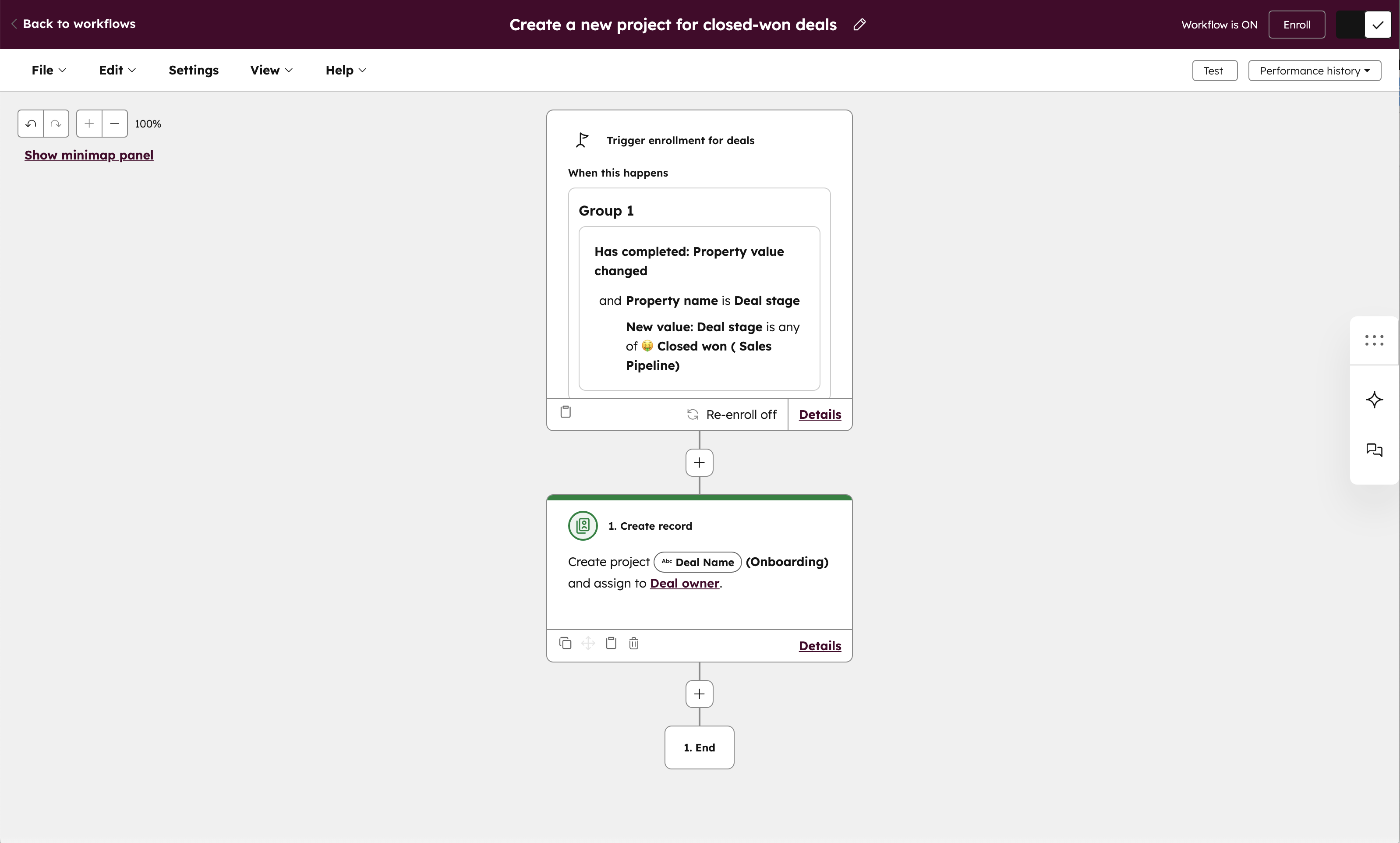
What’s coming soon
HubSpot has already signaled several “in development” features for Projects (as of September 2025).
These fast-follow features are what will really determine if Projects can move from a basic tracker to a true project management option inside HubSpot.
Here's what's up next:
Projects Task Card
The new Tasks card will bring all tasks tied to a Project into one place. Instead of jumping between records, you’ll see task status, owners, and details directly on the Project record. This will make it much easier to understand progress at a glance and take action without leaving the page.
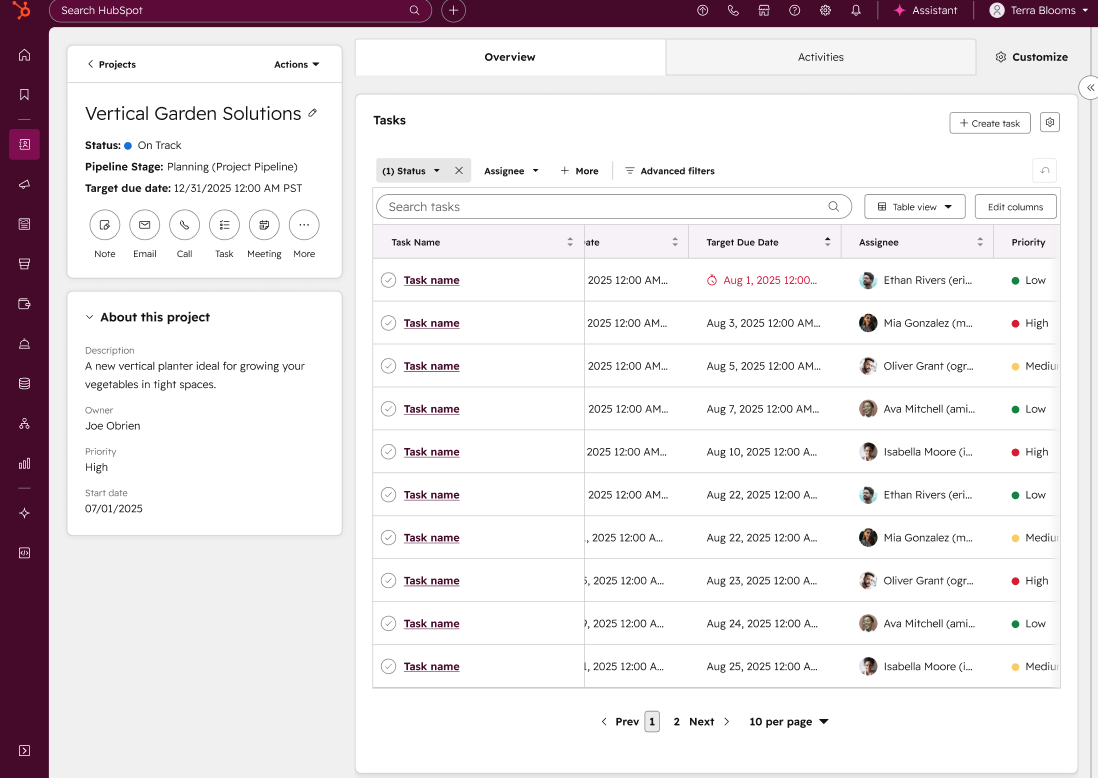
Project Subtasks
With subtasks, you'll be able to break larger tasks into smaller steps, each with its own owner and due date. This will help align projects to real-world workflows, where a single “task” often requires multiple actions to finish. Subtasks will live under their parent task and give you a more accurate picture of the work required.
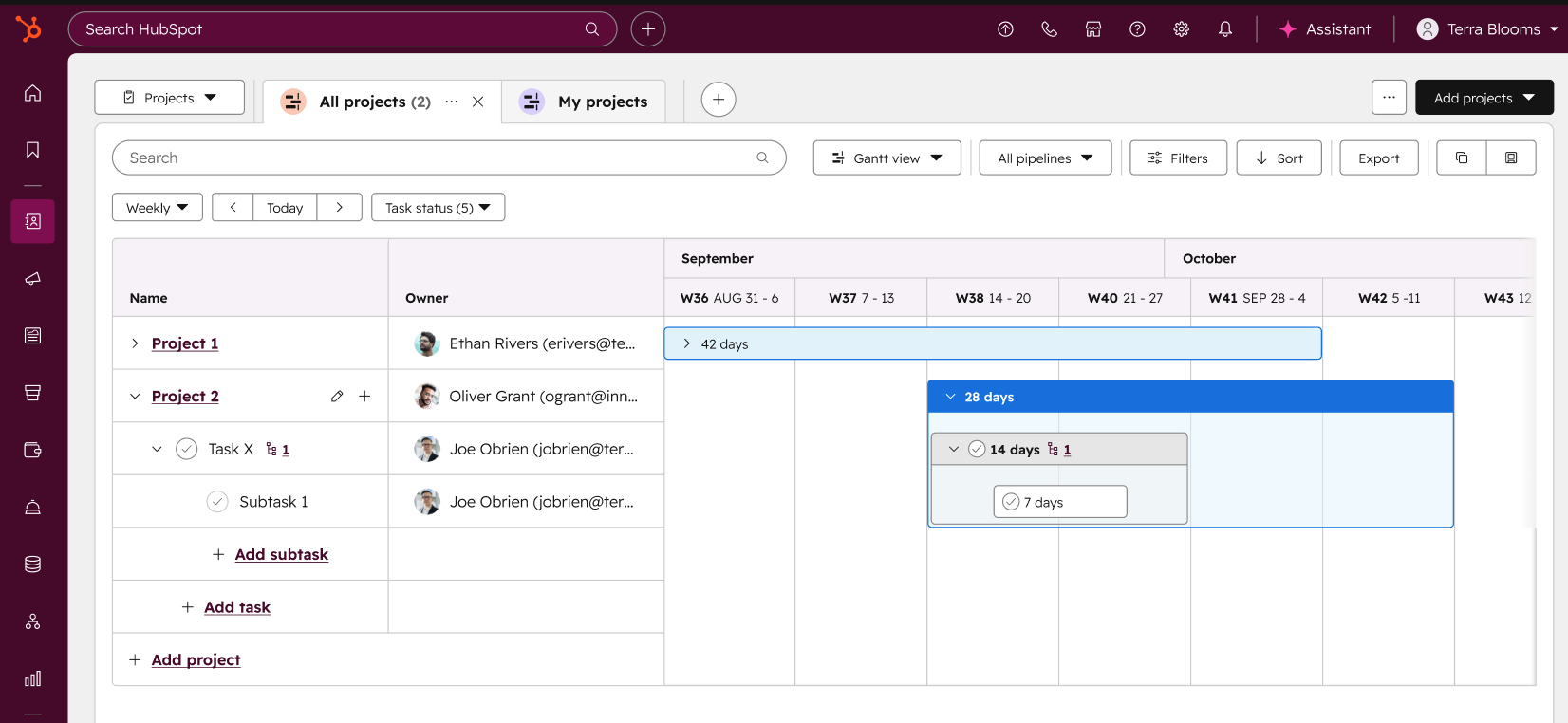
Task Dependencies
Task dependencies will let you set relationships between tasks, for example, Task B can’t start until Task A is complete. This will bring much-needed sequencing into Projects, helping teams reflect real processes and keep work moving in the right order. Dependencies can be set in the Gantt chart or directly on the Project record.
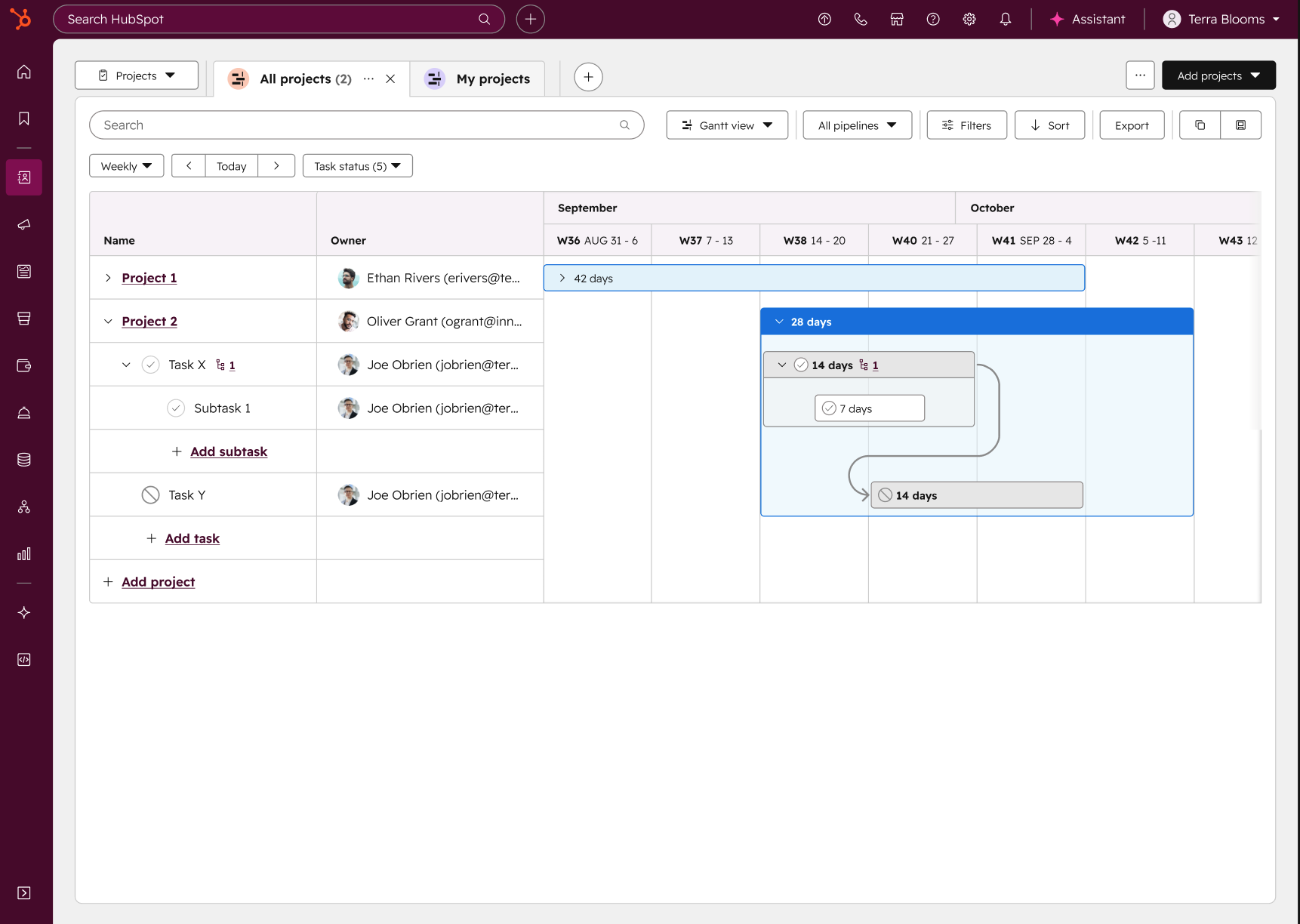
Project Templates
Project templates will allow admins to create pre-defined task lists and project structures that can be reused. Instead of starting from scratch every time, you you'll be able to launch new projects with consistent workflows already built in. This will save setup time and ensures projects follow the same process across your team.
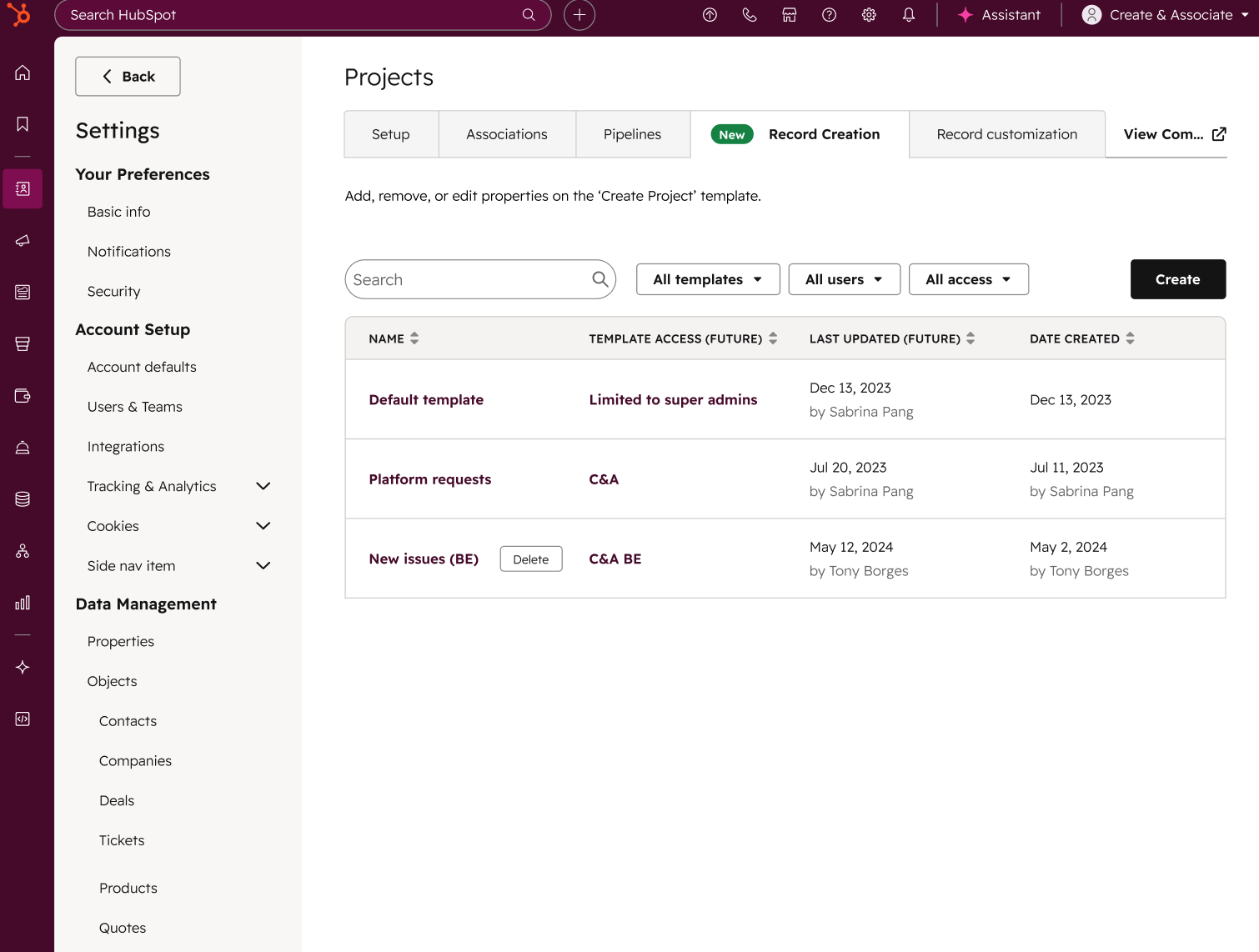
Best uses for HubSpot Projects right now
Because the feature is still early, Projects are currently best suited for internal, lightweight project management.
Good use cases today include:
→ Lightweight internal implementation tasks
→ Marketing campaign coordination
→ Tracking small operational projects
If your team already runs simple task management inside HubSpot, Projects may be a cleaner fit than trying to force projects into Deals or Tickets.
For complex, external-facing project management, dedicated tools like Asana, Monday.com, or ClickUp still have the advantage - at least for now.
Where Arrows fits in
One of the most exciting possibilities is how Projects can connect to customer-facing processes.
Arrows will integrate with the Projects object as soon as HubSpot opens the APIs (expected soon!).
Here’s how that will work:
→ Projects = internal tasks your team needs to complete.
→ Arrows = customer-facing tasks your customers need to complete during onboarding or implementation.
→ All connected in HubSpot so your internal project work and your customer-facing onboarding plan stay in sync.
This pairing means you’ll be able to spin up an onboarding Project in HubSpot automatically when a deal closes, track internal tasks on the Projects object, and seamlessly share customer tasks in Arrows.
Limitations to keep in mind
It’s important to set the right expectations:
→ Projects are not (yet) a full replacement for established project management tools for most teams.
→ Reporting options are limited compared to other objects.
→ Features like templates and dependencies are still in development.
→ Permissions and visibility controls are evolving.
For many teams, Projects will feel like a good first step toward managing projects in the CRM rather than an immediate full solution.
Frequently asked questions about HubSpot Projects
Does HubSpot have project management?
Yes. HubSpot recently introduced a Projects object at INBOUND 2025 that allows teams to manage internal projects and tasks directly in the CRM. It’s designed for lightweight project management and is expected to expand with features like subtasks, dependencies, and templates.
What is the HubSpot Projects object?
The Projects object is part of HubSpot’s core object library. It helps teams track multi-step projects, tasks, and deadlines natively in HubSpot.
Can you create projects automatically in HubSpot?
Yes. Projects can be created automatically via workflows. For example, when a deal is marked closed-won, HubSpot can spin up a project record automatically.
Is HubSpot Projects a replacement for tools like Asana or ClickUp?
In our opinion, not yet. Projects are best for lightweight internal task tracking today. With future updates like templates and dependencies, it may cover more complex needs, but dedicated project management tools still offer more depth currently.
The bottom line
HubSpot’s new Projects object is still early, but it lays a foundation for project-style work to live natively in the CRM.
→ If you’re already doing lightweight project or task management in HubSpot, Projects is worth testing.
→ If you’re running complex projects today, keep an eye on fast-follow features like subtasks and dependencies.
→ And if you’re managing onboarding or implementation, watch for the Arrows integration. That’s where Projects will really connect the dots between your internal work and your customers’ progress.
Over the next six months, expect Projects to evolve quickly. The real power will come when internal project management and customer-facing onboarding live side by side in HubSpot.
👉 Want to see how Arrows connects customer onboarding directly to HubSpot? Book a demo here.
Your customers will be happy you subscribed to our newsletter.
Join 14,000+ subscribers who read the Happy Customers newsletter—it's jam-packed with tips-and-tricks about sales, onboarding, HubSpot, and winning happy customers at scale.

